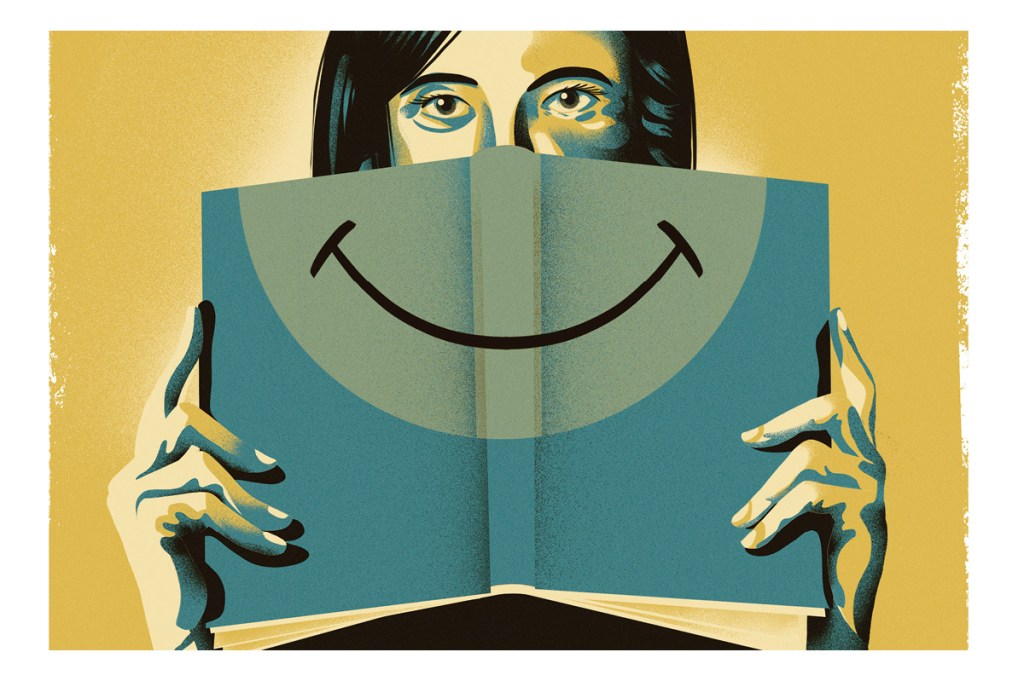If a Martian landed on Earth and wanted a quick summary of the state of modern American life, I would point him toward the works of Curtis Sittenfeld.
Sittenfeld (born 1975 in Ohio) is a novelist. Like all the great ones, her perceptions are more accurate about real life than most nonfiction writers’ could claim. In Prep (2005), she skewered American class in the story of a Massachusetts boarding school; Sittenfeld herself went to private school at Groton. In Rodham (2020), a novel about Hillary Clinton, she nailed today’s politics. And, in her best book to date, American Wife (2008), a thinly disguised novel about George and Laura Bush, she filleted the American approach to inherited money, and the swaggering confidence it produces. Now, in Romantic Comedy, we get the Sittenfeld insight into a new phenomenon — celebrity of the modern age.
There’s a very straightforward plot — on which skeleton Sittenfeld hangs her endless series of exceptional insights into the behavior of contemporary Americans. Sally Milz is a super-bright, neurotic and — crucially — average-looking thirty-six-year-old scriptwriter on The Night Owls, a New York late-night comedy show, clearly based on Saturday Night Live.
When her equally average-looking, equally bright fellow scriptwriter, Danny Horst, gets engaged to the gorgeous movie star Annabel Lily, Sally invents the axiom at the kernel of this book: the Danny Horst Rule. Sally defines the rule like this:
“Such couples would never exist with the genders switched; a gorgeous male celebrity would never fall in love with an ordinary, dorky, unkempt woman. Never. No matter how clever he was.”
The Danny Horst Rule seems pretty inviolable to me. But then Sally comes across the exception to the rule — in the shape of herself. Enter, as a musical guest on her show, Noah Brewster. Apart from also being thirty-six, he is everything Sally is not: monumentally good-looking, rich and famous ever since his huge hit, “Making Love in July,” fifteen years before. When Noah falls for Sally, he doesn’t just break the Danny Horst Rule. He also morphs, at his own admission, into an example of that widespread phenomenon – the awkward, rich, successful man who is less intelligent than his less rich and less successful partner.
Sittenfeld’s title is a clever one. Her book isn’t a romcom in the usual sense; it’s more a romance conducted by a comedy writer. And I bet the movie that comes out of it won’t resemble the traditional romcom. Still, in the Danny Horst Rule and the Men-with-Smarter-Partners scenario, Sittenfeld has brilliantly identified two of the obstacles to romance that are the bedrock of romcoms.
As Nora Ephron, godmother of the romcom, screenwriter of When Harry Met Sally… and Sleepless in Seattle, said,
The constant search for an obstacle in romantic comedy is the hard part. Since people fall into bed right away, class distinctions don’t matter as much as they did in Jane Austen’s time, and what your parents feel about the person you’re going to marry doesn’t matter as much as they did in Shakespeare’s time. What amused me so much about Sleepless in Seattle was that it was proof there were no obstacles left. The reason these people weren’t together was that they had never met.
A book about a comedy writer wouldn’t be funny if Sittenfeld weren’t so funny herself. She is brilliant at thinking up the comic situations behind a show like Saturday Night Live. At one point, she has the comedy team come up with a sketch about the sort of internet searches dogs might make: “Am I a good girl?”; “Am I five or thirty-five?”; “Is my tail a normal size?”; “Refinancing my mortgage.”
What an eye Sittenfeld has — and what an ear. In Sally’s courtship with Noah, she isolates the miserable emotions that lie beneath most recent love songs: “Being married to you is hell but let’s congratulate ourselves for gutting it out”; “We both were attracted to other people, you drove me crazy, I wanted to kill you. But, baby, after all these years, you’re still the one.”
She can be gleefully obscene, too, but always in the service of a joke. Pinned on the wall of Sally’s comedy show office are two lists: one of rude words allowed by the network censor (“boner, balls, dick, cock…”); the other of words that had to be changed (“pussy, tits, vulva, pink, wet”). As Sally says, “It’s almost like there’s a double standard for terms related to men’s sexuality and terms related to women’s, huh?”
There is the Sittenfeld approach in a nutshell: make a wise point about twenty-first-century behavior without being censorious, virtue-signaling or wanting to cancel anyone, while also being funny and right. Curtis Sittenfeld is the great American observer.
This article was originally published in The Spectator’s May 2023 World edition.

























